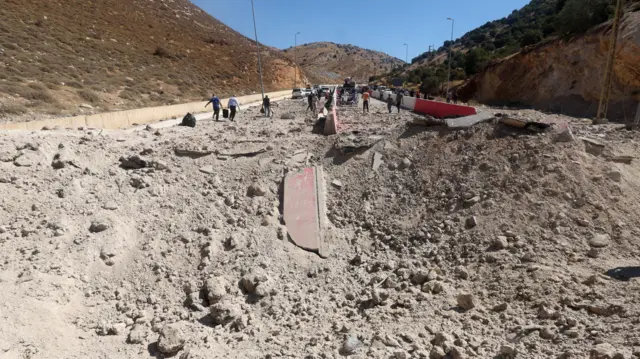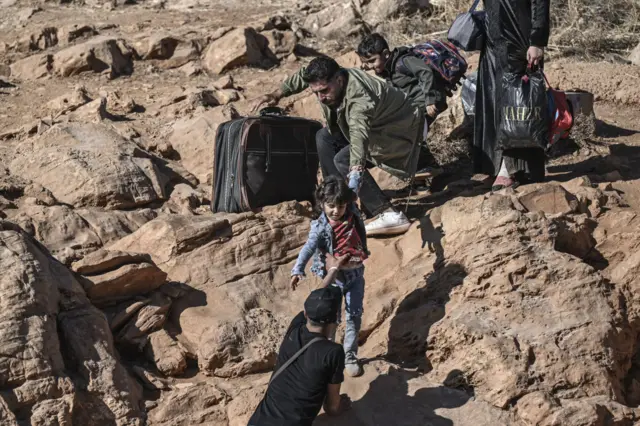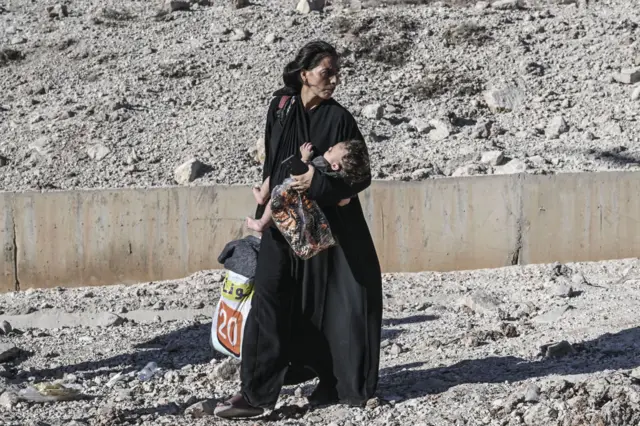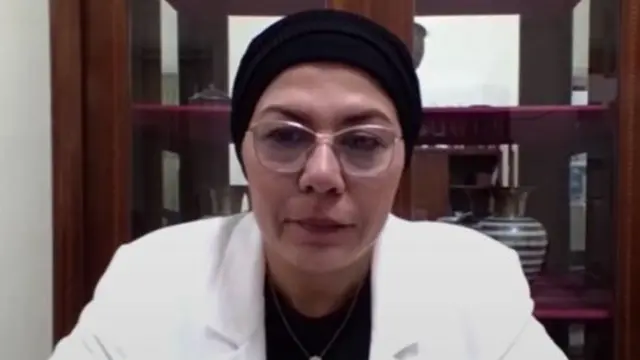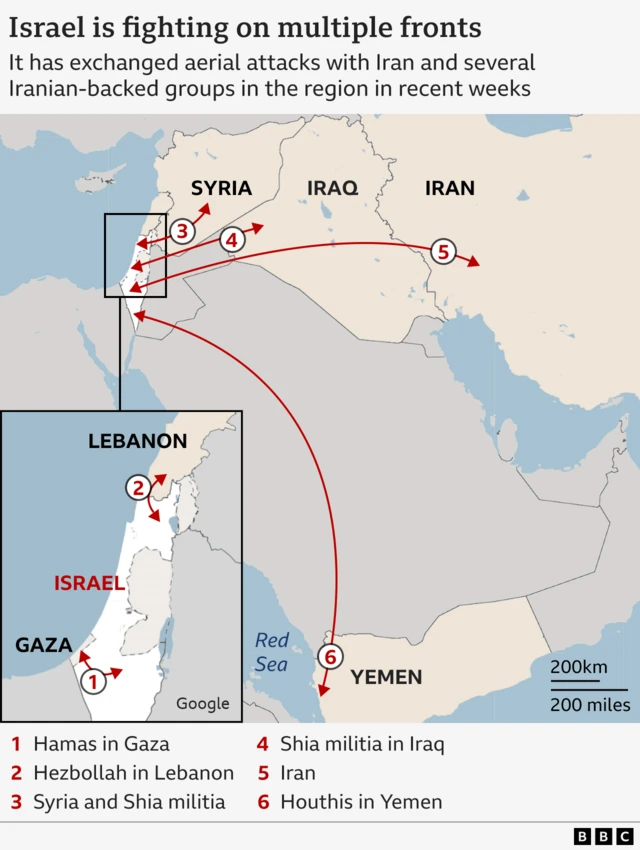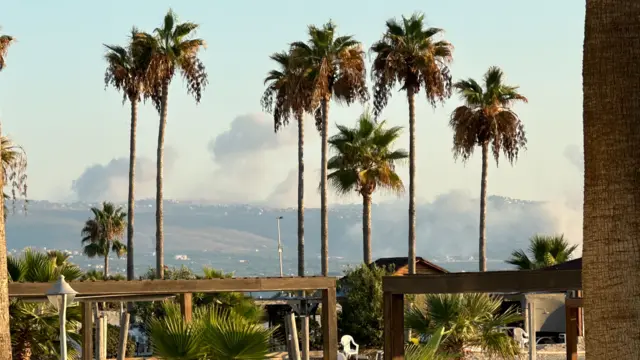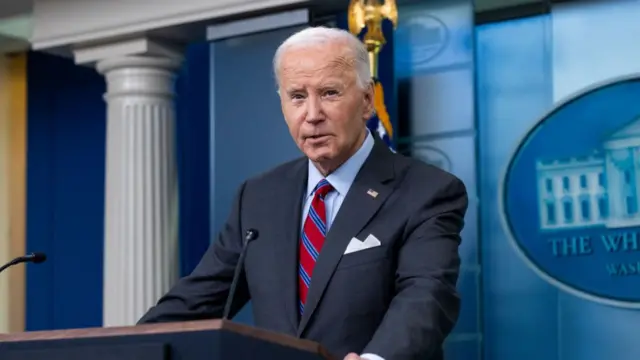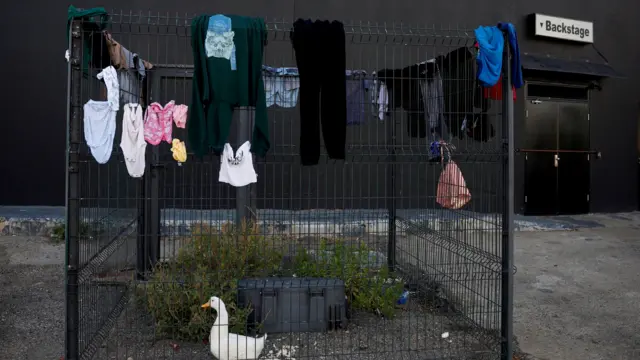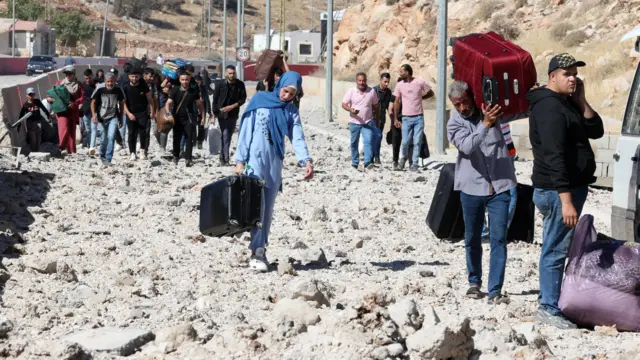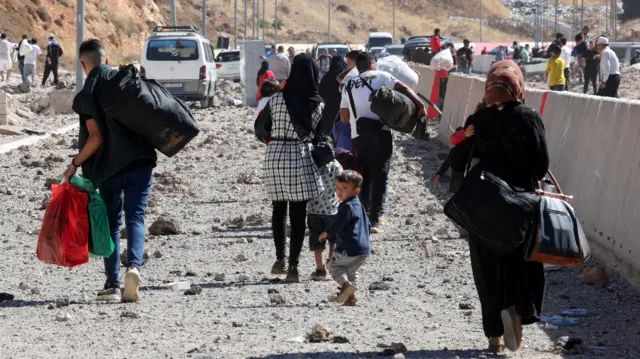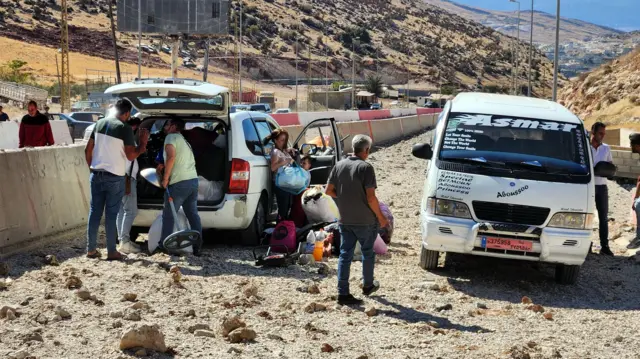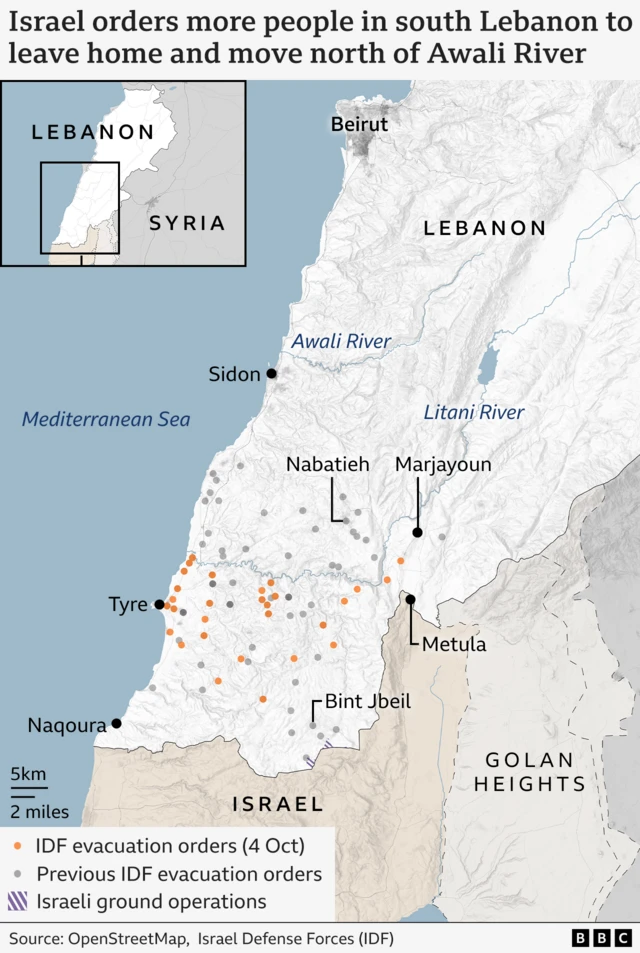All 900 shelters for displaced people in Lebanon full - UNpublished at 23:02 BST 4 October 2024
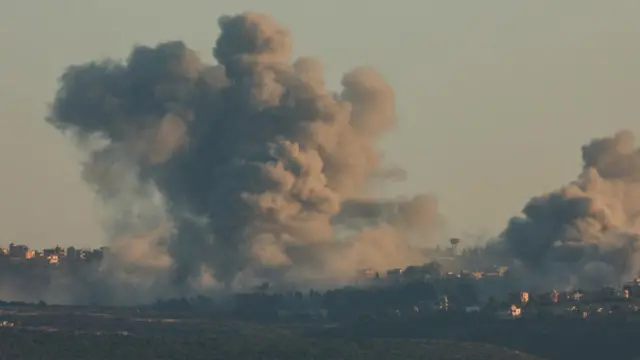 Image source, Reuters
Image source, ReutersWe're pausing our live coverage for now, and we'll be continuing it tomorrow morning.
For now, here are the latest developments:
- The Hezbollah-affiliated Islamic Health Committee said 11 paramedics have been killed by Israeli strikes in southern Lebanon today
- All 900 shelters for displaced people in Lebanon are now full, according to the United Nations
- Israel said that by Friday afternoon, Hezbollah had fired over 100 rockets into its territory
- Iran's supreme leader Ayatollah Ali Khamenei made a rare public appearance, where he said the country's attack on Israel earlier this week was the "minimum punishment" for Israel
- US President Joe Biden said Israel isn't going to decide "immediately" on how to respond to the Iran attack, and suggested Israel should not hit Iran's oil facilities in retaliation
- US forces carried out air strikes on 15 targets in areas of Yemen controlled by the Houthi rebels on Friday, the military said
- The IDF said that 250 Hezbollah fighters have been killed since its ground incursion started four days ago
